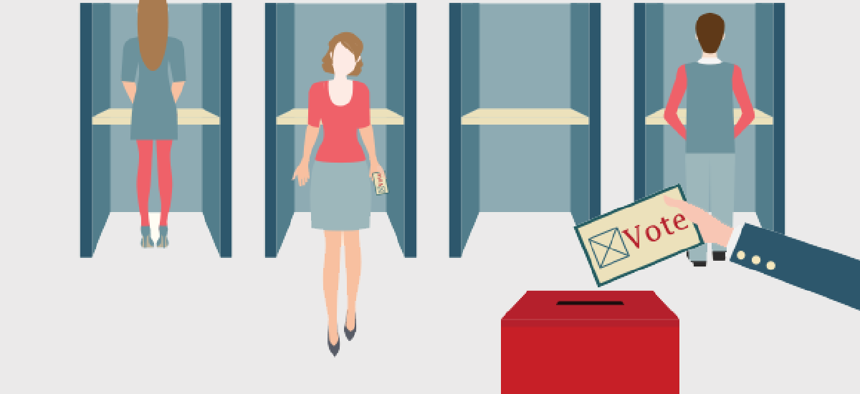San Francisco funds open source voting


Connecting state and local government leaders
Mayor Ed Lee’s proposed budget includes $300,000 towards planning and development of an open source voting system.
San Francisco’s open source voting project is quickly becoming a reality. Mayor Ed Lee’s proposed budget includes $300,000 towards planning and development of an open source voting system that would allow the city to own and share the software.
Dominion Voting Systems, formerly known as Sequoia Voting, has provided San Francisco’s voting technology for years, but its contract with the city and county expires at the end of the year, according to KQED News.
“When you rely on an outside vendor, it’s their technology, which is proprietary and confidential, and the public really doesn’t have access to the code that they’re relying on,” said Supervisor Scott Wiener, who’s running for state Senate. “It’s very ‘black box,’ so we just have to have faith that their machines are producing accurate results,” he told KQED.
Advocates say open source voting technology is cheaper, more transparent and more secure than today’s “black box” systems, which run on vendor-specific systems. Open source software is free, does not have annual license fees, runs on off-the-shelf hardware, can be combined with other systems, and is viewable and editable by anyone. Vice president of San Francisco’s Election Committee and open source software developer Chris Jerdonek estimated that an open source voting system for San Francisco will cost $6 million over three years, compared to $13.8 million for the first four years (in 2007 dollars) for its current system.
According to Ars Technica, Los Angeles has been working on a similar plan since 2009 that is expected to go live in 2020.
“Our nation’s elections systems and technology are woefully antiquated,” Greg Miller of the Open Source Elections Technology Foundation told Forbes. "They are officially obsolete." Miller said open source voting software will instill confidence in voters that their votes are being accurately counted. As the software will be openly viewable (not editable) by the public, citizens can verify the integrity of the system. This confidence will get more voters to the polls.
“Every ballot that’s cast in the United States is counted by a machine, so we owe it to the voters and the public to use the most secure, most transparent, most auditable technology. Open source has proven itself in the private sector,” former California Association of Voting Officials President Kammi Foote told Forbes. “We’re still using 20-year-old technology that we know is problematic,” said Foote, who is also the elected registrar of voters for Inyo County, Calif.
Three companies -- System and Software, Dominion Voting Systems and Hart InterCivic -- dominate the voting machine market and, as such, are not incentivized to update their systems, Forbes said.
Last November San Francisco’s Elections Commission unanimously decided to support the development and certification of an open source voting system running on off-the-shelf software in time for the June 2020 election. In February, San Francisco’s Department of Elections requested $2.3 million for the first year of the project, $300,000 of which was included in the mayor’s just-released budget.




